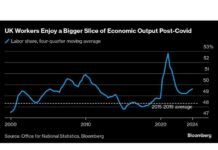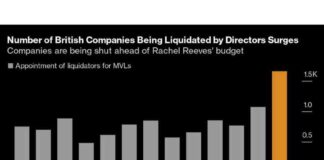Mortgage rates are a key factor to consider when buying a home, refinancing, or upgrading to a new property. In the United States, the average interest rate for a 30-year, fixed-rate mortgage sits at 6.218%, as reported by mortgage technology and data company Optimal Blue. Keeping an eye on current mortgage rates is essential to making informed decisions about when to make a move in the housing market.
**Current Mortgage Rate Averages in the U.S. (September 2024)**
Here is a breakdown of the current average mortgage interest rates for various types of fixed-rate mortgages:
– **30-year conforming:** 6.218% (Current Rate), 6.368% (Rate Reported a Week Prior), 6.545% (Rate Reported a Month Prior)
– **30-year jumbo:** 6.627% (Current Rate), 6.639% (Rate Reported a Week Prior), 6.961% (Rate Reported a Month Prior)
– **30-year FHA:** 5.961% (Current Rate), 6.130% (Rate Reported a Week Prior), 6.406% (Rate Reported a Month Prior)
– **30-year VA:** 5.681% (Current Rate), 5.786% (Rate Reported a Week Prior), 5.965% (Rate Reported a Month Prior)
– **30-year USDA:** 6.054% (Current Rate), 6.212% (Rate Reported a Week Prior), 6.455% (Rate Reported a Month Prior)
– **15-year conforming:** 5.418% (Current Rate), 5.677% (Rate Reported a Week Prior), 5.822% (Rate Reported a Month Prior)
**Understanding Mortgage Rates and Fluctuations**
Mortgage rates are influenced by various factors, including economic conditions, inflation rates, and Federal Reserve policies. The Federal Reserve’s decisions on the federal funds rate impact how much it costs banks to borrow money, which in turn affects interest rates for consumers and businesses. In response to economic conditions, the Federal Reserve has adjusted rates over the years, leading to fluctuations in mortgage rates.
High mortgage rates in recent years have been a result of factors such as inflation, low housing supply, and high demand. The Federal Reserve’s actions, along with economic conditions and creditworthiness, play a significant role in determining mortgage rates for borrowers.
**Will Mortgage Rates Decrease Soon?**
There is speculation that the Federal Reserve may cut interest rates before the end of 2024, although recent decisions have kept rates steady. The economic outlook, inflation rates, and employment factors all play a role in determining when and if rates will decrease in the near future. Federal Reserve Chair Jerome Powell has hinted at the possibility of a rate cut at upcoming meetings, signaling potential changes in the mortgage rate landscape.
**Navigating Home Prices and Equity**
High home prices can pose challenges for buyers, especially with low housing supply and increasing demand. Understanding historical trends in home prices can provide valuable insights for prospective buyers looking to enter the market. Leveraging home equity can be a strategic financial move for homeowners, allowing them to borrow against the value of their property for various purposes.
**Types of Mortgages and Financing Options**
When considering mortgage options, borrowers can choose from various types of loans, including conventional loans, government-backed loans (FHA, VA, USDA), conforming loans, and jumbo loans. Each type of mortgage offers different terms, rates, and eligibility requirements, catering to a diverse range of borrowers’ needs.
**Maximizing Your Mortgage Rate**
To secure the best mortgage rate possible, borrowers can take steps to improve their credit score, shop around for lenders, buy mortgage points, and utilize rate locks. Understanding the factors that impact mortgage rates and how to leverage them to your advantage can lead to significant savings over the life of a loan.
**Refinancing and Financial Planning**
Refinancing an existing mortgage can be a strategic move to lower interest rates, access cash, or adjust loan terms. Knowing when and how to refinance can help borrowers make informed decisions about their financial future and homeownership goals.
**Making Informed Decisions**
Whether you’re a first-time homebuyer, looking to refinance, or considering leveraging your home equity, understanding mortgage rates, loan options, and financial strategies is essential. By staying informed and proactive in your financial decisions, you can navigate the complex world of mortgages with confidence and clarity.






















